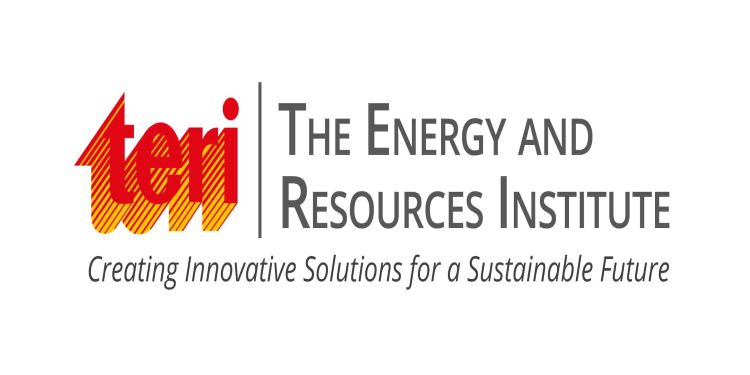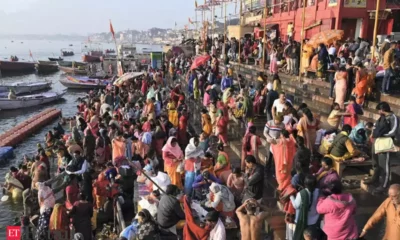News
World Sustainable Development Summit: Markets must help find real solutions for people directly affected by climate change


Businesses must lead the effort to help reduce poverty, achieve SDGs and accelerate low-carbon development
New Delhi, October 5, 2016: The World Sustainable Development Summit organised by TERI in New Delhi today underscored the need for businesses and the private sector to take the lead in poverty reduction and to ensure the rapid and sustained adoption of Sustainable Development Goals (SDGs).
The inaugural session—attended by Mr. Jayant Sinha, Hon’ble Minister of State for Civil Aviation, Government of India; Mr. Erik Solheim, Executive Director, UNEP and Under-Secretary-General, United Nations; Mr. R. Mukundan, Managing Director, Tata Chemicals Ltd; Mr. Ashok Chawla, Chairman, TERI; Dr. Ajay Mathur, Director General, TERI; and Dr. Annapurna Vancheswaran, Senior Director, TERI, among others—deliberated on the need to find an approach that creates relevant solutions for people at the bottom of the pyramid.
This was followed by the first plenary on how businesses must play a pivotal role in the global effort to reduce poverty and achieve the SDGs. The session was moderated by Mr. Nitin Desai, former Under-Secretary General for Economic and Social Affairs, UN & Distinguised Fellow, TERI and attended by Mr. Krishan Dhawan, CEO, Shakti Sustainable Energy Foundation; Mr. Amit Shah, Senior President & Country Head, Corporate Strategy and Communications, Yes Bank & Executive Director, Yes Institiute; Mr. Pau Abello, Managing Director, Roca Bathroom Products Pvt Ltd; Mr. Vijay Kalantri, President, All India Association of Industries; and Mr. Anirban Ghosh, Chief Sustainablity Officer, Mahindra Group, Mahindra and Mahindra Ltd.
There was special emphasis on identifying initiatives with a long-term, sustainable, programme-based approach rather than short-term, project-based initiatives. A longer-term approach, the session noted, would open new opportunities, especially while identifying demand in areas like energy efficiency, renewable energy, water treatment, transportation, waste management and sanitation, where right partnerships, sustainable financing and robust market mechanisms would be crucial.
Mr. Jayant Sinha, the Hon’ble Minister of State for Civil Aviation, Government of India, in his inaugural address, said, “Let us take the summit to the real India, for instance to Chhattisgarh, Madhya Pradesh, Jharkhand and Assam, where people are dealing with these problems every day. We must take our solutions to places where the problem is real and give the people a first hand sense of this. We cannot diminish the scale and magnitude of the issues we are dealing with. We all know the planet is at a risk right now.”
The minister underscored the need for interventions that really engage with the issues of sustainability and find scalable solutions that can potentially change the way we live. In this context, highlighting the importance of businesses while seeking solutions, the minister added, “Businesses that innovate are not incidental and, together with the markets they represent, they are going to be the fundamental way we will be able to solve these problems and form the bedrock of a revolutionary behavioural change that’s needed.”
The second plenary session, which focused on accelerating the transition to low carbon industries, was attended by Mr Randy Newton, Vice President- Enterprise Engineer, Ingersoll Rand; Mr Deepak Amitabh, Chairman and Managing Director, PTC India Ltd; Mr Shyam Saran, Padma Bhushan awardee and former foreign secretary; Mr Yongping Zhai, Director – Energy Division, South Asia Regional Department, Asian Development Bank; and Mr Sourabh Kumar, Managing Director, Energy Efficiency Services Ltd.
Mr. Shyam Saran, former foreign secretary, said, “Businesses must become fully aware about the risks posed to them by climate change and environmental crises. Businesses will move to cleaner sources of fuel when we put a price on carbon, otherwise it would be difficult to make this fundamental shift. Growth based on a carbon economy is not sustainable and hence a transition is needed towards cleaner sources energy.”
Dr. Ajay Mathur, Director-General, TERI, said “For the Paris Agreement to be effective, for you and I to be able to provide our bit to the partnership, we need technology, finance and best practices to be available to all, in a sense cast the net wider beyond. We need to move action from few to most.”
The summit is witnessing attendance by a range of luminaries from different fields, such as Mr Tomasz Kozlowski, Ambassador of the European Union to India; Mr Karmenu Vella, Commissioner for Environment, Maritime Affairs and Fisheries, European Commission; Mr Amitabh Kant, CEO, NITI Aayog (National Institution for Transforming India), Government of India; Mr Jaco Cilliers, Country Director, UNDP India; Ms Xueman Wang, Senior Carbon Finance Specialist, The World Bank, Sustainable Development Network and Mr Dipak Dasgupta, Former Principal Economic Adviser, Ministry of Finance, India & Former Board Member, Green Climate Fund. Taking place from October 5 to 8, 2016, at India Habitat Centre, New Delhi, the WSDS is also an attempt to initiate discussions on methodologies to be adopted in order to envisage a plan to realise the Global Goals beyond 2015. The idea is to create a common platform for countries to identify opportunities for consensus and collaboration to balance the realities of ecosystem preservation with aspirations for holistic economic development.
-



 News3 weeks ago
News3 weeks agoKW Delhi 6 Mall Onboards New Brands
-



 News3 weeks ago
News3 weeks agoManasum Senior Living Launches IKIGAI GOA, A Senior Living Community in North Goa, in collaboration with Prescon Homes
-



 News2 weeks ago
News2 weeks agoGodrej Properties Sells Rs 3k cr+ Homes of Godrej Zenith, Gurugram, within 3 days
-



 News3 weeks ago
News3 weeks agoBridging India Divide: Top 5 Tier- 2 Cities to Focus On
-



 News3 weeks ago
News3 weeks agoCommercial Realty Gets Tech Savvy: Fast Construction, Enhanced Convenience
-



 News3 weeks ago
News3 weeks agoMultipoint Connection – A Definite Boon
-



 News2 weeks ago
News2 weeks agoRBI’s Status Quo on Key Policy Rates to Help Maintain the Real Estate Growth Momentum, Say Industry Stalwarts
-



 News3 weeks ago
News3 weeks agoSacred Cities See a Retail Boom as Spiritual Tourism Surge: CBRE Report



















